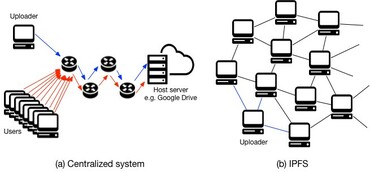Irreparable harm
_31-thumb-370x228-1144.jpg) The anti-doping systems in sports have long intrigued me as a highly visible example of a failed security system. The case of Kamila Valieva at the recent Winter Olympics provides yet another example.
The anti-doping systems in sports have long intrigued me as a highly visible example of a failed security system. The case of Kamila Valieva at the recent Winter Olympics provides yet another example.
I missed the event itself because: I don't watch the Olympics. The corruption in the bidding process, documented by Andrew Jennings in 1992, was the first turn-off. Joan Ryan's 1995 Little Girls in Pretty Boxes, which investigated abuse in in women's gymnastics and figure skating, made the tiny teens in both sports uncomfortable to watch. Then came the death of German luger Nodar Kumaritashvili in a training run at the 2010 Vancouver Winter Olympics. The local organizing committee had been warned that the track was dangerous as designed, and did - nothing. Care for the athletes is really the bottom line.
Anti-doping authorities have long insisted that athletes are responsible for every substance found in their bodies. However, as a minor Valieva is subject to less harsh rules. When the delayed results of a December test emerged, the Russian Anti-Doping Agency determined that she should be allowed to compete. The World Anti-Doping Agency, the Internet Olympic Committee, and the International Skating Union all appealed the decision. Instead, the Court for Arbitration for Sport upheld RUSADA's decision, writing in its final report : "...athletes should not be subject to the risk of serious harm occasioned by anti-doping authorities' failure to function effectively at a high level of performance and in a manner designed to protect the integrity of the operation of the Games" wrote in deciding to allow Valieva to compete. In other words, the lab and the anti-doping authorities should have gotten all this resolved out of the world's sight, before the Games began, and because Valieva was a leading contender for the gold medal, denying her the right to compete could do her "irreparable harm".
The overlooked nuance here appears to be that Valieva had been issued a *provisional* suspension. As a "Protected Person" - that is, a child - she does not have to meet the same threshold of proof that adults do. The CAS judges accepted the possibility that, as her legal team argued, her positive test could have been due to contamination or accidental ingestion, as her grandfather used this medication. If you take the view that further investigation may eventually exonerate her, but too late for this Olympics, they have a point. If you take the strict view that the fight against doping requires hard lines to be drawn, then she should have been sent home.
But. But. But. On her doping control form, Valieva had acknowledged taking two more heart medications that aren't banned: L-carnitine, and hypoxen. Why is a 15-year-old testing positive for *three* heart medications? I don't care that two of them are legal.
Similarly: why is RUSADA involved when it's still suspended following Russia's state-sponsored doping scandal, which still has Russian athletes competing under the flag of the Russian Olympic Committee in a pretense that Russia is being punished?
Skating experts have had a lot to say about Valieva's coaches. We know from gymnastics as well as figure skating that the way women's bodies mature through their teens puts the most difficult - and most exciting - acrobatics out of reach. That reality has led to young female athletes being put on strict diets and doped with puberty blockers to keep them pre-pubescent. In her book, Ryan advocated age restrictions and greater oversight for both gymnastics and figure skating. Reviews complained that her more than 100 interviews with current and former gymnasts did not include the world's major successes, but that's the point: the 0.01% for whom the sport brings stardom are not representative. At Slate, Rita Wenxin Wang describes the same "culture of child abuse" Ryan described 25 years ago, pinpointing in particular Valieva's coach, Eteri Tutberidze, whose work with numerous young winning Russian teens won her Russia's Order of Honour from Vladimir Putin in 2018.
At The Ringer, Michael Baumann reports that Tutbeidze burns through young skaters at a frantic pace; they wow the world for two or three years, and vanish. That could help explain CAS's conviction that this medal shot was irreplaceable..
At the Guardian, former gymnast Sarah Clarke calls out the IOC for its failure to protect Valieva. Clarke was one of the hundreds of victims of sexual predator Larry Nassar and notes that while Nassar has been jailed his many enablers have never been prosecuted and the IOC never acted against any of the organizations (US Gymnastics, USADA) that looked the other way. Also at the Guardian, Sean Ingle calls the incident clear evidence of abuse of a minor. At Open Democracy, Aiden McQuade calls Valieva's treatment "child trafficking" and an indictment of the entire Olympic movement.
Given that minors should not be put in the position Valieva was, there's just one answer: bring in the age restrictions that Ryan advocated in 1995 and that gymnastics and tennis brought in 25 years ago - tennis, after watching a series of high-profile teenaged stars succumb to injuries and burnout. This is a different definition of "harm".
The sports world has long insisted that it should be self-regulating, independent of all governments. The evidence continues to suggest the conflicts of interest run too deep.
Illustrations: Russian women's figure skating coach Eteri Tutberidze, at the 2018 award ceremony with Vladimir Putin (via Wikimedia.
Wendy M. Grossman is the 2013 winner of the Enigma Award. Her Web site has an extensive archive of her books, articles, and music, and an archive of earlier columns in this series. Stories about the border wars between cyberspace and real life are posted occasionally during the week at the net.wars Pinboard - or follow on Twitter.

